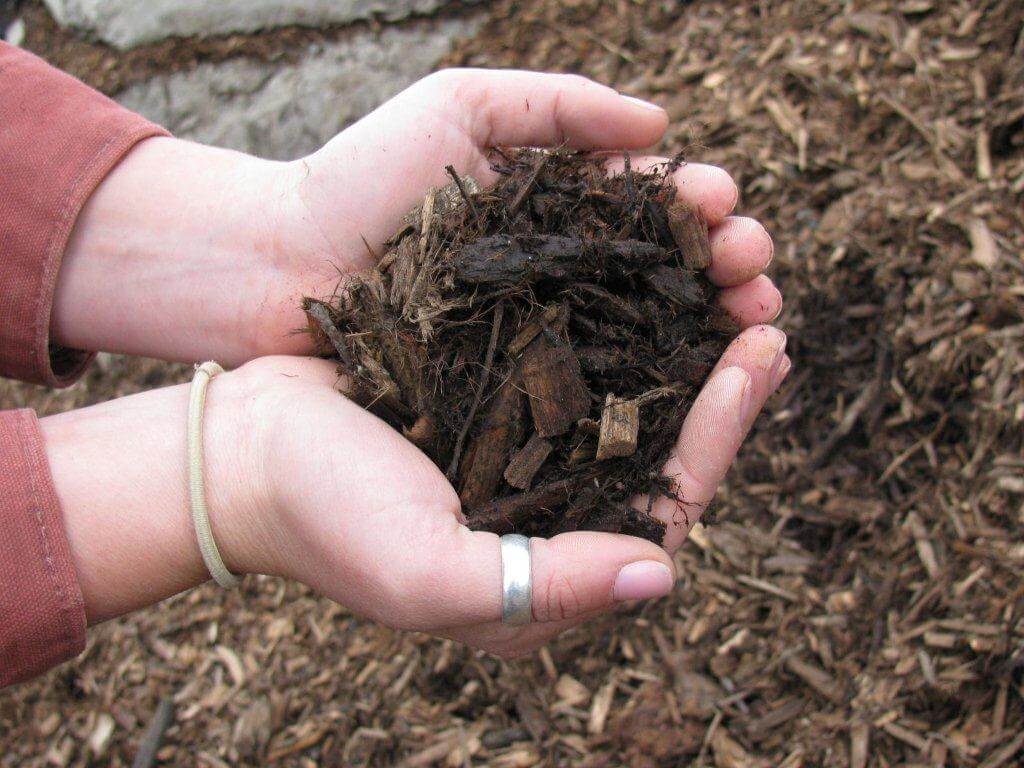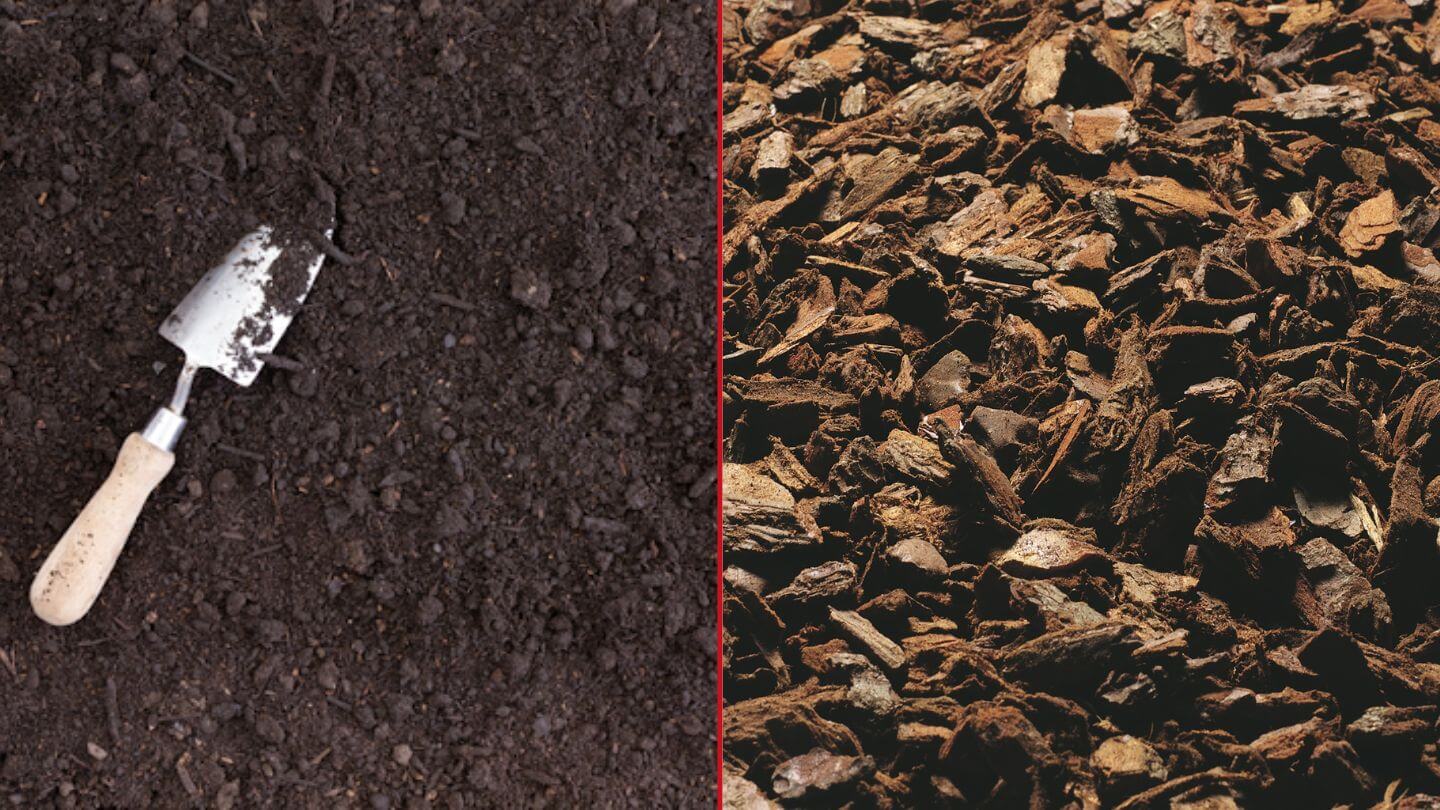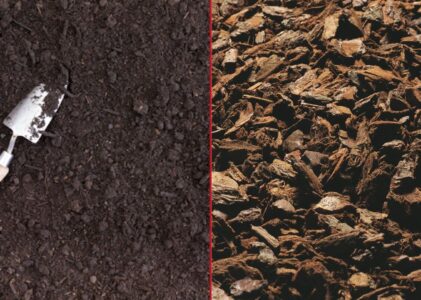When it comes to gardening, the choice of mulch can significantly impact plant health, moisture retention, and overall aesthetics. Two popular options are pine bark mulch and wood chips. Each has its unique benefits and drawbacks, making it essential for gardeners to understand their differences before making a decision. This article explores the characteristics, advantages, and disadvantages of both pine bark mulch and wood chips, helping you choose the best option for your garden.
Understanding Pine Bark Mulch
What is Pine Bark Mulch?
Pine bark mulch is derived from the outer layer of pine trees. It is typically shredded or chipped into small pieces, which can vary in size. When considering wood chips vs mulch, pine bark mulch stands out for its rich brown colour and natural appearance, making it an attractive choice for many garden designs.
Pine bark mulch decomposes at a slower rate compared to other organic mulches, which means it can last longer in the garden. Its texture and structure provide excellent aeration and drainage, promoting healthy root development in plants.
Benefits of Pine Bark Mulch
One of the primary advantages of pine bark mulch is its ability to retain moisture. This is particularly beneficial in dry seasons, as it helps keep the soil beneath it moist, reducing the need for frequent watering. Additionally, pine bark mulch is known to suppress weed growth effectively, allowing plants to thrive without competition for nutrients.
Furthermore, as pine bark mulch breaks down, it enriches the soil with organic matter, improving soil structure and fertility over time. This can lead to healthier plants and increased yields in vegetable gardens.
Potential Drawbacks of Pine Bark Mulch
Despite its many benefits, pine bark mulch does have some drawbacks. Its slow decomposition rate means that it may not provide immediate nutrients to the soil. For gardeners looking for a quick boost in fertility, this can be a disadvantage.
Moreover, pine bark mulch can sometimes attract pests such as termites, particularly if used in large quantities. It is essential to monitor for any signs of infestation and take appropriate measures if necessary.
Exploring Wood Chips
What are Wood Chips?
Wood chips are created from the chipping of various types of wood, including hardwoods and softwoods. They come in different sizes and textures, depending on the type of wood used and the chipping process. Wood chips are often a by-product of lumber production or tree maintenance, making them a sustainable choice for gardeners.
Unlike pine bark mulch, wood chips decompose more quickly, which can be beneficial for soil health. They also provide a rustic appearance that many gardeners find appealing.
Advantages of Wood Chips
One of the most significant benefits of wood chips is their rapid decomposition. As they break down, they release nutrients into the soil, enhancing its fertility. This can be particularly advantageous for gardeners looking to improve soil quality quickly.
Wood chips also provide excellent insulation for plant roots, helping to regulate soil temperature. This can be especially important during extreme weather conditions, such as hot summers or cold winters.
Disadvantages of Wood Chips
However, wood chips do have some disadvantages. Their faster decomposition rate means that they will need to be replenished more frequently than pine bark mulch. This can lead to increased maintenance and costs over time.
Additionally, wood chips may not suppress weeds as effectively as pine bark mulch, potentially allowing unwanted plants to thrive in the garden. Gardeners may need to implement additional weed control measures to manage this issue.
Comparing Pine Bark Mulch and Wood Chips
Moisture Retention
When it comes to moisture retention, both pine bark mulch and wood chips perform well, but pine bark has the edge. Its structure allows it to hold moisture more effectively, making it a better choice for gardens in drier climates or during hot summer months.
Wood chips, while still beneficial for moisture retention, tend to dry out more quickly. This means gardeners may need to water more frequently when using wood chips as mulch.
Soil Enrichment
Both types of mulch contribute to soil enrichment, but they do so at different rates. Pine bark mulch decomposes slowly, providing a long-term source of organic matter. This gradual breakdown can lead to sustained improvements in soil structure and fertility over time.
In contrast, wood chips decompose more rapidly, offering a quicker boost in nutrients. This can be particularly beneficial for new gardens or areas where soil quality is poor.
Aesthetic Appeal
Aesthetically, both pine bark mulch and wood chips have their merits. Pine bark mulch offers a rich, dark colour that can enhance the visual appeal of garden beds. Its natural look complements a variety of plants and landscaping styles.
Wood chips, on the other hand, provide a more rustic appearance. They can create a charming, woodland feel in gardens, making them a popular choice for naturalistic landscapes. Ultimately, the choice between the two may come down to personal preference and the overall design of the garden.

Cost Considerations
Initial Investment
When considering the cost of mulch, both pine bark and wood chips are relatively affordable options. However, prices can vary based on location, availability, and the type of wood used for chips. Generally, pine bark mulch may be slightly more expensive due to its slower production and processing time.
It is important to consider the long-term costs as well. While pine bark mulch may require less frequent replacement, wood chips will need to be replenished more often, which can add up over time.
Maintenance Costs
Maintenance costs can also differ between the two types of mulch. Pine bark mulch, with its longer lifespan, may require less frequent reapplication, leading to lower ongoing costs. Conversely, the quicker decomposition of wood chips means that gardeners will need to budget for more regular purchases.
Additionally, if using wood chips, gardeners may need to invest in additional weed control measures, which can further increase maintenance costs.
Environmental Impact
Sustainability of Pine Bark Mulch
Pine bark mulch is often considered a sustainable option, particularly when sourced from responsibly managed forests. However, the process of harvesting and processing pine bark can contribute to deforestation if not done sustainably.
It is essential for gardeners to seek out suppliers who prioritise sustainable practices to minimise environmental impact.
Sustainability of Wood Chips
Wood chips are typically a by-product of other industries, such as lumber and tree maintenance. This makes them a sustainable choice, as they utilise materials that would otherwise go to waste. Additionally, many suppliers of wood chips focus on sourcing from sustainably managed forests, further enhancing their environmental credentials.
Using wood chips can also contribute to a circular economy, as they are often recycled and repurposed rather than discarded.
Conclusion: Making the Right Choice
Choosing between pine bark mulch and wood chips ultimately depends on the specific needs of your garden. If moisture retention and long-lasting benefits are your primary concerns, pine bark mulch may be the better option. Its ability to suppress weeds and enrich the soil over time makes it a popular choice among gardeners.
On the other hand, if you are looking for a quick nutrient boost and a rustic aesthetic, wood chips could be the ideal choice. Their rapid decomposition and ability to insulate plant roots can be particularly beneficial in certain situations.
Ultimately, both pine bark mulch and wood chips have their unique advantages and disadvantages. By considering factors such as moisture retention, soil enrichment, aesthetic appeal, cost, and environmental impact, gardeners can make an informed decision that best suits their gardening goals.
Other resources – Redgum Firewood: Premium Firewood for Your Sydney Home


